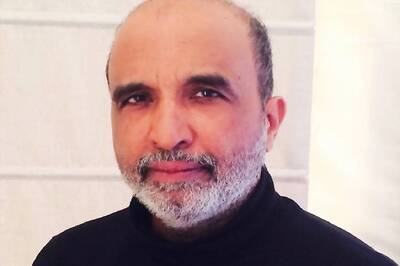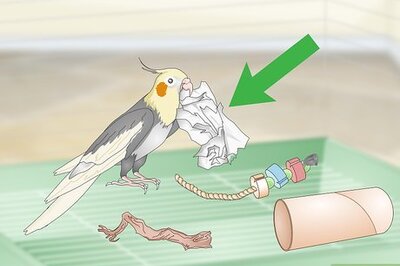
views
As longevity increases across the world, dementia numbers are also on the rise. Alarmingly, as reported by Alzheimer’s Disease International, a new case of dementia develops every 3 seconds. Despite being the seventh leading cause of death amongst all diseases as per a WHO report released on September 2, 2021, there is very little awareness about the initial signs and symptoms. Interestingly, as early signs like forgetfulness, confusion or problems in doing daily activities, are often mistaken to be a normal part of aging, this delays detection and leads to a loss of precious time when interventions can be started.
Understanding dementia and recognising the early signs
The most common misconceptions about dementia are 1. that it is a normal part of growing older, and 2. everyone with memory problems has dementia. Dementia is not a normal part of aging but is a syndrome, or a group of signs and symptoms, which occur as a result of diseases or injuries in the brain. There are many different types of dementia that are differentiated by the underlying causes of brain damage, but symptoms often overlap and mixed forms of dementia are common. Memory problems occur most commonly in Alzheimer’s disease which is the most common form of dementia and accounts for 60-70% of cases. However, some of the other early warning signs to watch out for are:
- Forgetting names of close family members and friends
- Becoming lost in familiar places. e.g., getting confused with directions back home from the local marketplace
- Having difficulty communicating, e.g., mixing up words, or jumping topics so that others find it difficult to understand what is being said
- Difficulty performing familiar tasks like handling finances or planning for festival celebrations
- Losing track of time or becoming confused and disoriented
In some forms of dementia such as frontotemporal dementia, changes in mood and behaviour are the most common signs. A person can become irritable, aggressive or say and do things that are not socially appropriate. Family members are often shocked and embarrassed by these changes, as there is little awareness that these are actually signs of dementia.
Unfortunately, despite more than 30 years of dementia research, there is no cure for it. As a result of degeneration in the brain, patients with dementia gradually become dependent for all basic needs, such as bathing, feeding, and using the toilet, requiring 24-hour care and support. The burden of care typically falls on family caregivers as healthcare facilities for dementia are far and few.
Importance of identifying dementia early
Longitudinal research studies show the average lifespan following a diagnosis of dementia is about 10 years but can vary widely between 5-15 years. Even though there is currently no cure for dementia, a lot can be done to manage problematic behaviours, slow progression of the illness and improve quality of life for the person living with dementia and their family.
Current interventions for dementia include a combination of pharmacological and non-pharmacological approaches.
- Pharmacological interventions: These aim to improve and delay symptoms of dementia and are also used in the management of challenging behaviours such as agitation or hallucinations.
- Stimulation therapies: The brain is neuroplastic, which means that it modifies itself based on experience, and cognitive stimulation therapy aims to provide stimulation to slow progression.
- Psychosocial interventions: Being a dementia caregiver is physically and emotionally draining, and caregiver burnout is very common. Psychosocial interventions provide much-needed psychological support to caregivers.
Prevention of dementia
Dementia numbers are expected to rise to 78 million by 2030 and the impending economic and societal burden of care is massive. The Lancet Commission report on dementia prevention in 2020 identified 12 modifiable risk factors that could potentially prevent or delay up to 40% of dementias. These include things that we can all do to protect ourselves, e.g., adopting a healthy lifestyle, exercising regularly, not smoking or consuming excess alcohol, managing diabetes and hypertension. Learning new things and socialising are also important aspects that are often overlooked with aging.
September 21 is World Alzheimer’s Day and this year’s theme is, ‘Know Dementia, Know Alzheimer’s’. Early detection and diagnosis of dementia is an essential first step to providing interventions and care for people living with it.
With population aging, rates of dementia are expected to almost triple by 2050 and we are all potentially part of this alarming statistic. Spreading awareness about dementia is critical.
The author is the Co-Founder and Project Director of Samvedna Senior Care. The views expressed in this article are those of the author and do not represent the stand of this publication.
Read all the Latest News , Breaking News and Ukraine-Russia War Live Updates here.




















Comments
0 comment